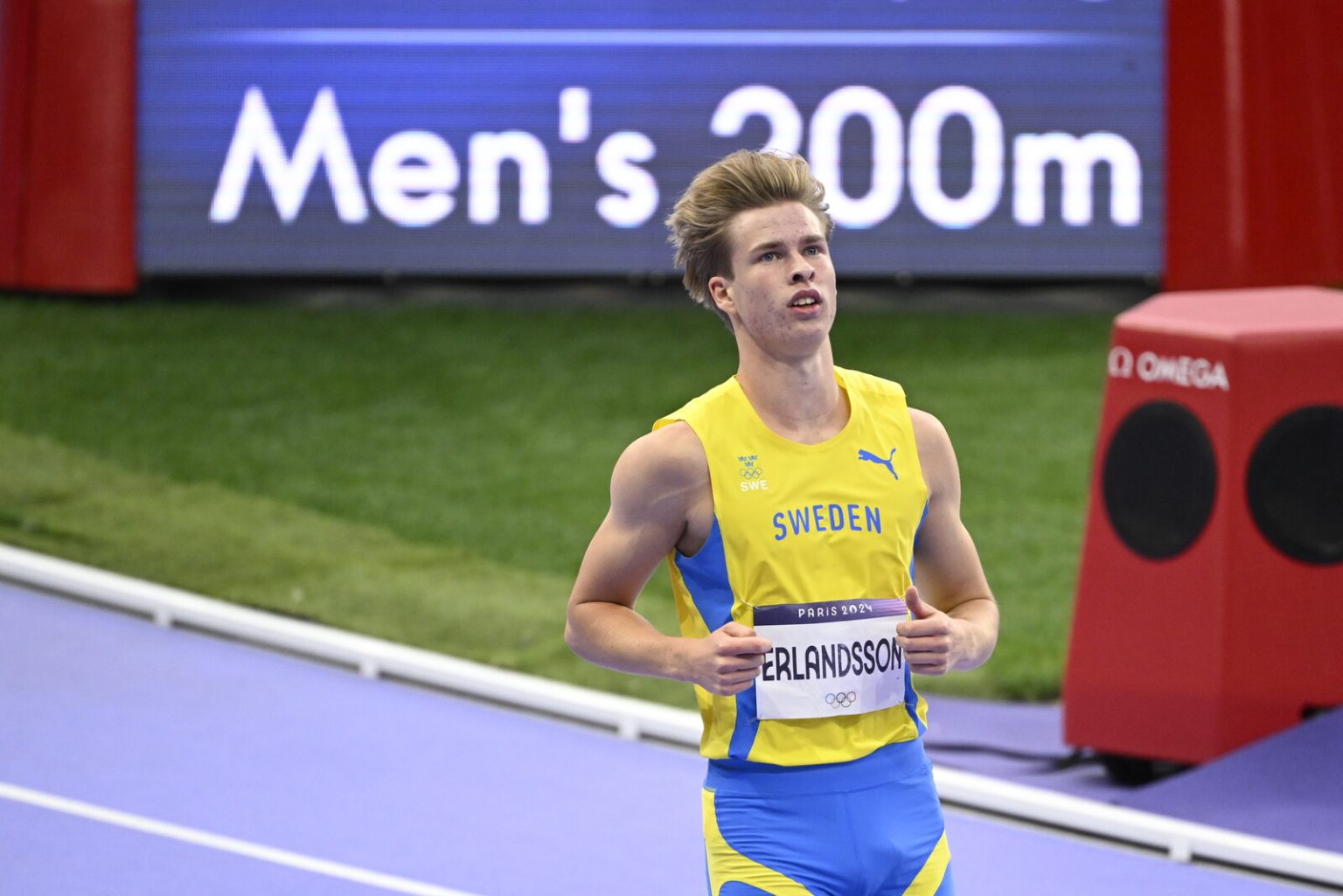Erik Erlandsson, the 20-year-old Swedish sprint sensation, etched his name into the annals of Swedish athletics history during an indoor athletics gala held in Växjö. In a breathtaking display of speed and power, Erlandsson shattered the long-standing Swedish record for the 200-meter indoor sprint, clocking an astonishing time of 20.43 seconds. This remarkable feat not only eclipsed the previous record by a substantial 22-hundredths of a second but also solidified Erlandsson’s position as one of Sweden’s most promising track and field athletes. His performance serves as a testament to his burgeoning talent and dedication to the sport, hinting at even greater achievements to come.
Erlandsson’s record-breaking run comes on the heels of a highly successful 2023 season where he first burst onto the national scene with a remarkable fourth-place finish at the European Championships. This achievement was followed by an equally impressive run to the semifinals of the Olympic Games, further cementing his status as a rising star. The Växjö performance, however, elevates him to a new level, marking a significant leap forward in his athletic journey. Having already made his mark at the continental and international levels, Erlandsson’s record-shattering run signifies a new chapter in his career, one filled with the potential for even greater accolades and accomplishments.
The previous record of 20.65 seconds, held by Johan Wissman, had stood for nearly two decades, having been set on February 28, 2004. Wissman’s record had represented a pinnacle of Swedish sprinting for a generation, a benchmark that seemed almost untouchable. Erlandsson’s performance not only broke this longstanding record but also reshaped the landscape of Swedish sprinting, setting a new standard for aspiring athletes and signaling a potential shift in the nation’s track and field prowess. The magnitude of Erlandsson’s achievement is underscored by the longevity of the previous record, demonstrating a significant leap in performance and training methodologies.
Reflecting on his achievement, a humble and somewhat surprised Erlandsson admitted to the Swedish Athletics Federation’s website that while he had anticipated a fast time, the sheer speed of his run exceeded even his own expectations. He acknowledged feeling the potential for a swift performance in training, but the actual race delivered a result beyond what he had envisioned. This statement reveals not only his ambition but also a grounded understanding of the unpredictable nature of competitive athletics. Despite his evident talent, Erlandsson maintains a realistic perspective, recognizing that true performance can only be measured in the heat of competition.
Erlandsson’s journey to this historic moment has been marked by consistent hard work and dedication, culminating in a performance that has resonated throughout the Swedish sporting community. The significance of his achievement extends beyond the individual accomplishment, inspiring a new generation of Swedish athletes and signaling a potential surge in the nation’s track and field competitiveness. His record-breaking run is a source of national pride, marking a moment of triumph for Swedish athletics and offering a glimpse into a future potentially filled with further successes on the global stage.
This landmark achievement places Erik Erlandsson firmly at the forefront of Swedish athletics, setting the stage for what promises to be a captivating career. His meteoric rise, from a promising young athlete to a national record holder, provides a compelling narrative of talent, dedication, and the pursuit of excellence. As Erlandsson continues to hone his skills and push the boundaries of his potential, the world of athletics eagerly anticipates his future performances, witnessing the unfolding story of a young athlete poised to make a significant impact on the global stage. His record-breaking run serves not only as a testament to his current capabilities but also as a prologue to the exciting chapters yet to be written in his athletic journey.














